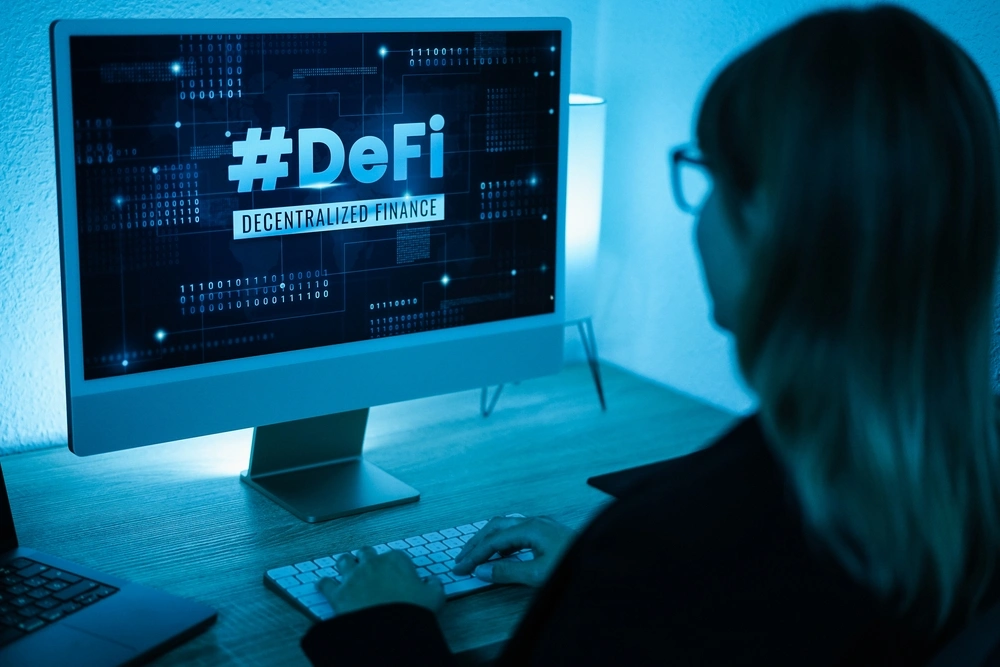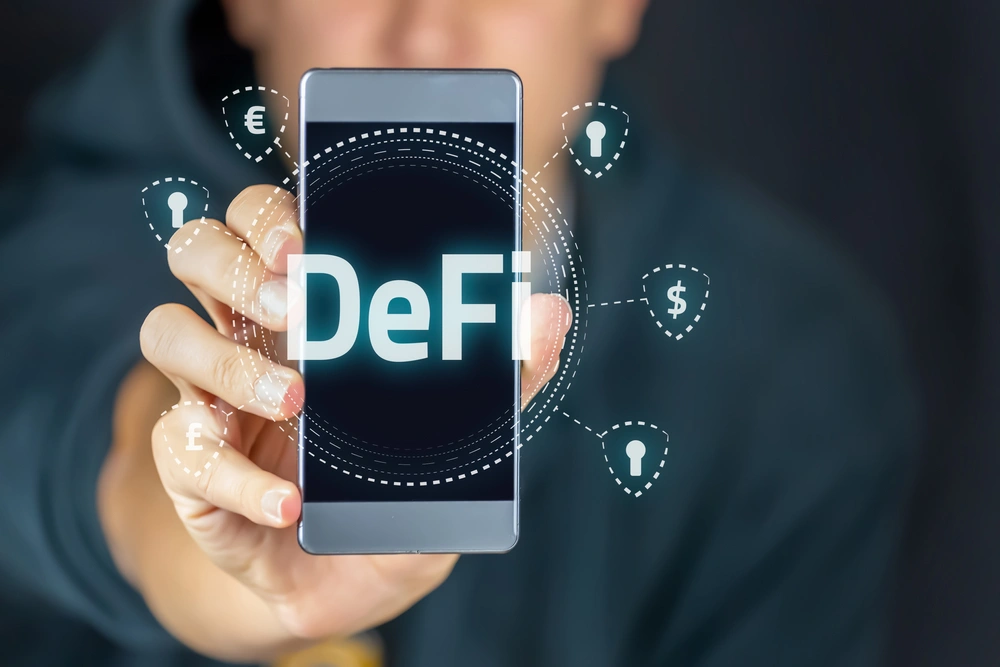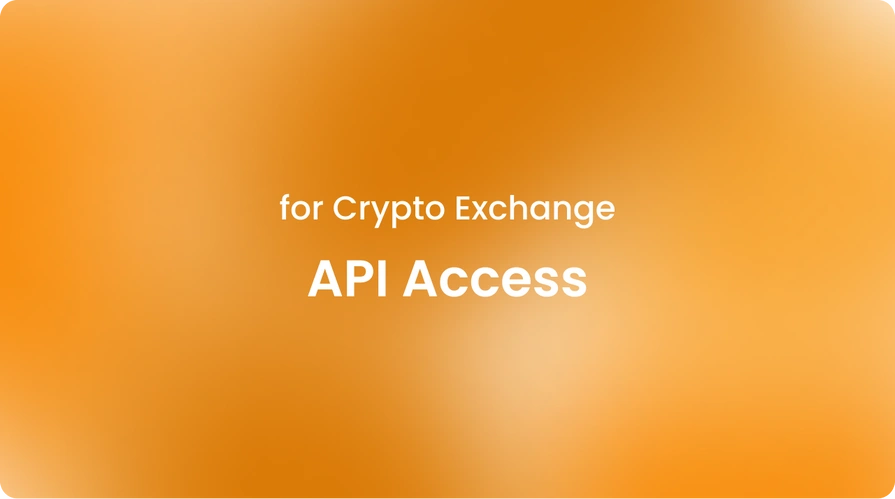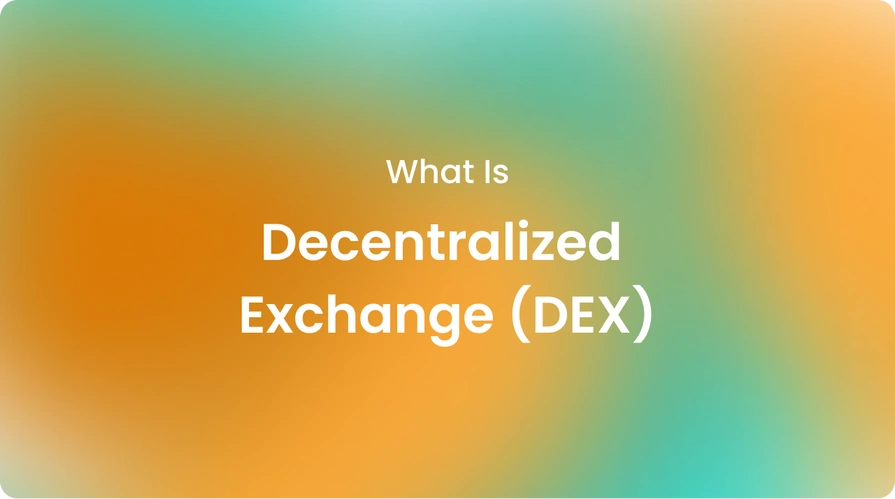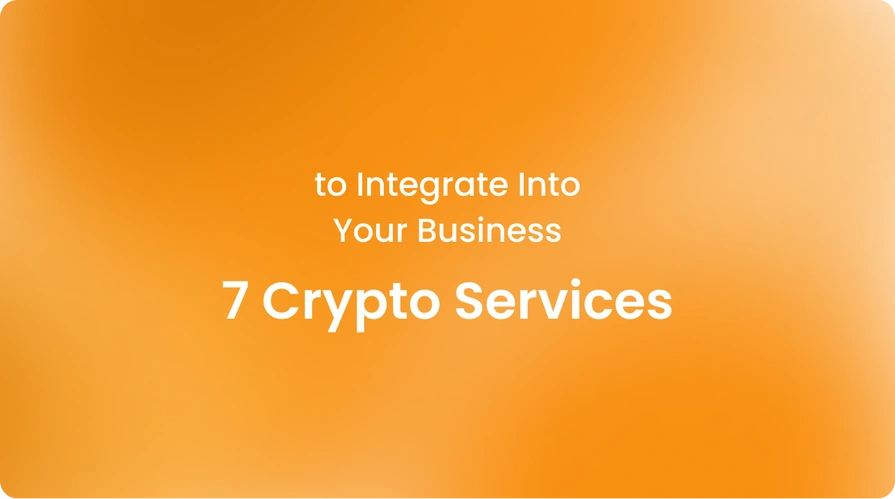|technology, knowledgehub
What Is a DeFi Wallet?
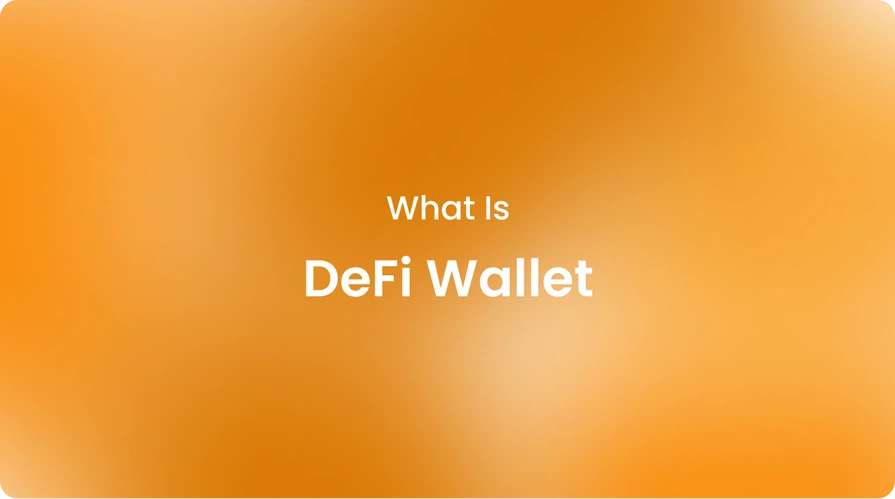
DeFi wallet is a decentralized, user-controlled wallet that does not store users' private keys. A recovery phrase is necessary for restoring funds and is generated when a wallet is created.
This gives buyers full control over their money and lets them make crypto investments in a wide range of markets, such as NFT. To use DeFi, a user must have access to a non-custodial DeFi wallet.
In this article, we'll be diving into the fascinating world of decentralized finance, better known as DeFi, and exploring one of its core components: DeFi wallets.
By the end, you'll have a solid understanding of what a DeFi wallet is, how it works, and which factors to consider when choosing one for your needs. Join us in this blog to take advantage of all that the emerging DeFi landscape has to offer. Let's get started with what DeFi is in detail!
What is decentralized finance (DeFi)?
DeFi refers to financial services built using blockchain technology without centralized intermediaries like brokerages, exchanges, or banks. DeFi lets people use financial apps without having to trust or get permission from anyone else.
It does this by using smart contracts, which are programs stored on a blockchain that run when certain conditions are met. In other words, DeFi aims to cut out the middleman and provide a more open alternative to traditional financial systems.
As of 2023, over $37.5 billion is locked in decentralized finance protocols. Popular DeFi services include decentralized exchanges (DEX), lending platforms, crypto derivatives, and insurance. The increased activity in DeFi shows the growing demand for open, global financial systems and digital assets.
How does a DeFi wallet work?
Unlike centralized crypto exchanges that maintain crypto custody of users' funds, DeFi wallets are non-custodial. This means the user controls the private keys to your accounts and funds at all times. Private keys securely authorize transactions on the blockchain without any third-party involvement.
So in essence, a DeFi wallet provides access to the decentralized financial world through its connection to blockchain technology and ability to store and send crypto assets privately. You may need secure and reliable crypto services in this regard.
Cryptobunq is a crypto-friendly digital bank offering various services in crypto and blockchain, including crypto wallets, API access for crypto exchange, e-commerce payments, crypto batch payments, and many more.
CBQ is an expert, one-stop-shop crypto service provider. You can integrate with Cryptobunq and start using the benefits of crypto for your business with our custody and wallet, exchange API, batch payments, and more solutions.
What is the difference between a DeFi wallet and a normal wallet?
Besides being non-custodial, the key difference between a DeFi wallet and normal wallet is the level of functionality. While regular crypto wallets mainly focus on sending and receiving value, DeFi wallets give full access to a vast, open financial system and the services within it through smart contract connectivity.
Some distinctive aspects between a DeFi wallet and a normal wallet include:
- DeFi wallets connect to decentralized exchanges, lending protocols, yield farming, and more through blockchain. Regular wallets are limited to basic transfers and storage.
- DeFi provides new financial instruments like synthetic assets, peer-to-peer lending, and community-governed stablecoins that aren't possible with regular wallets alone.
- Transactions on Ethereum and other smart contract platforms come with a small "gas" fee paid in native currency. DeFi wallets easily facilitate the gas payment process.
- Private keys equate to full control over funds, which is optimal for the trustless, permissionless nature of DeFi applications compared to centralized services.
While any type of crypto wallet stores value, a DeFi wallet acts as your portal to a whole new world of open, global financial services built using blockchain technology.
Is the DeFi wallet a crypto wallet?
A DeFi wallet is a software program that allows users to interact securely with decentralized applications and protocols. More specifically, a DeFi wallet serves as a gateway to store, send, and swap cryptocurrencies.
Furthermore, it enables access to lending and borrowing services; trade on DEXes; and more—all without needing to trust a central authority like a bank or cryptocurrency exchange. Therefore, it is a type of crypto wallet.
Is a DeFi wallet safe?
When it comes to security in the cryptocurrency realm, there is no absolute guarantee. However, DeFi wallets implement many safeguards to protect user funds:
- Private keys are encrypted client-side only, meaning no third party ever sees your keys. Loss of keys results in irreversible loss of funds.
- Seed phrases enable the recovery of wallets and funds even if private keys are somehow lost or stolen. These must be stored securely offline.
- Many wallets now support multi-signature transactions requiring more than one private key to authorize as an extra layer of security.
- Security audits are regularly conducted on major wallets, and most adopt practices like optional hardware wallet pairing to further decrease attack surfaces.
- New innovations like insurance and "social recovery" wallet features can help reduce the risk of private key loss, inhibiting access to funds.
Because operating in an open, global financial system is high-risk and high-reward, DeFi encourages people to take responsibility for their own funds.
Wallets make sure that access control and private key safety are the top priorities. Overall security is tight when best practices are followed; the key is learning how to manage risks and secure your crypto assets.
Which DeFi wallet is right for you?
When choosing your DeFi wallet, here are a few factors to consider:
- Token and blockchain support: Which chains do you need access to?
- User experience: Do reviews claim it is intuitive or complex? Design matters for adoption.
- Extensive features: Look for swap integration, NFT support, lending app compatibility, etc.
- Security: Hardware pairing? Multising? A comprehensive model usually ranks higher.
- Customer service: Active communities help quickly if issues arise.
The right DeFi wallet is the one that meets your unique needs; try different ones to see which meshes best with your skill level, budget, and crypto goals over the long term. That flexibility is part of what gives DeFi such revolutionary potential, after all.
If you need secure crypto wallet services, trust CBQ. CBQ is here to provide you with the right DeFi wallet for your business and individual needs in the crypto and blockchain ecosystem.
How do I set up a DeFi wallet?
Setting up a DeFi wallet is simple; you can download software extensions for browsers like Chrome or mobile apps from the App Store or Google Play. During sign-up, you'll be assigned a 12- to 24-word recovery phrase, or "seed phrase," for backing up the wallet.
Here are the basic steps:
- Go to the website and click the "Download" button for your browser or operating system.
- A browser extension or mobile app will be installed. For desktop, click "Add to Chrome" when prompted.
- You'll be guided to create a password-locked wallet by entering a strong passphrase twice for verification.
- Save the provided 12-word recovery phrase in a secure location, like a password manager. This phrase can restore access if you lose your private keys.
- Connect your wallet to DeFi applications by clicking "connect wallet" and approving the connection with your private keys.
- DeFi wallet will now be accessible through its icon in your browser toolbar or as a stand-alone app.
- Buy cryptocurrency and transfer it to your wallet for gas fees.
- You can now access the full DeFi ecosystem quickly by connecting to any app or protocol with a tap.
- Your wallet will sign or authorize all transactions that are recorded on-chain without needing to trust a middleman.
The setup is straightforward, and once your wallet is funded, you can start unlocking the world of decentralized finance. Just remember, above all else, to keep those private keys and recovery phrases safe!
Conclusion: introduction to non-custodial wallets and decentralized finance
To wrap up, DeFi wallets unlock an open, global financial future that is trustless, permissionless, and controlled by the user only.
By gaining familiarity with crypto wallets through safe experimentation platforms, anyone can start tapping into emerging DeFi services to lend, borrow, trade, earn interest, or provide liquidity.
Paying attention to security best practices is a must, yet autonomy over personal finances, transparency into networks, and access to innovation remain key DeFi traits that few can deny hold massive long-term appeal.
If you do not want to do all the steps by yourself and need expert help, CBQ is here to help with our wallet as a service solution. Contact us and explore the fast, secure, and easy blockchain-powered crypto wallet solutions!
